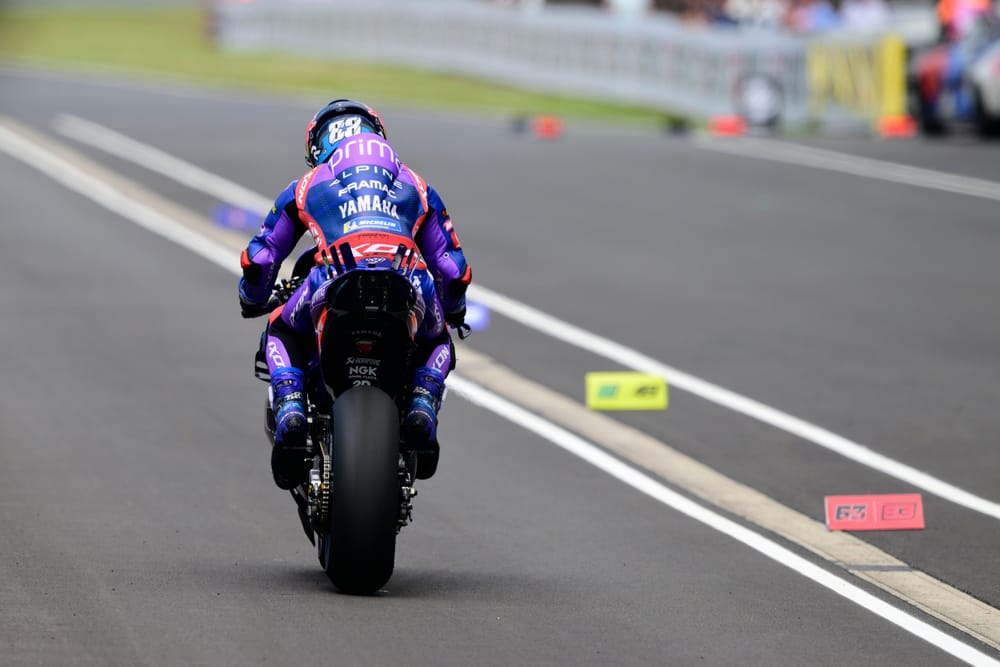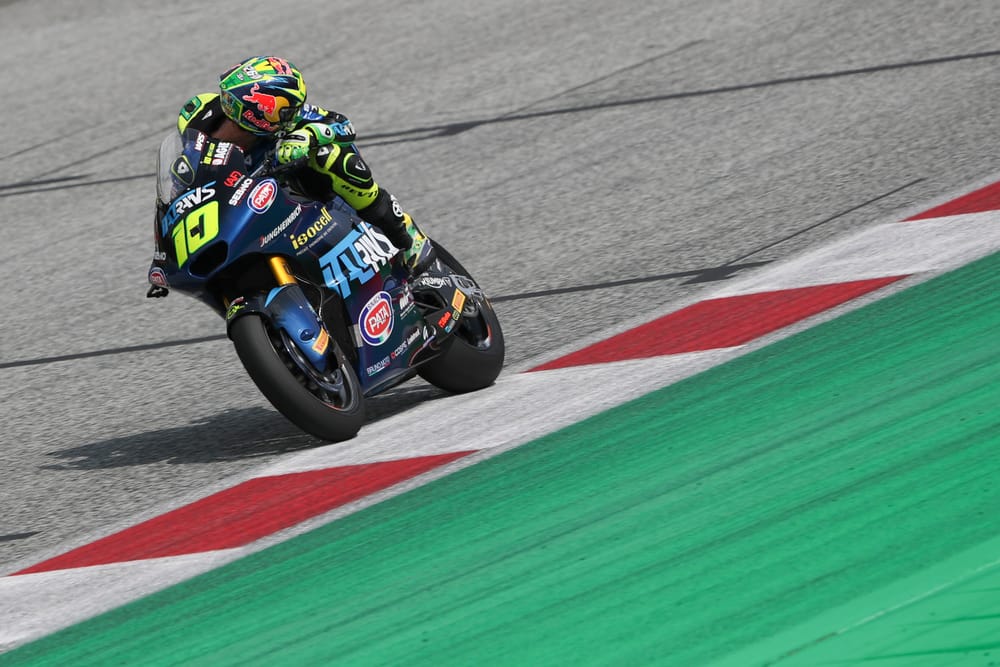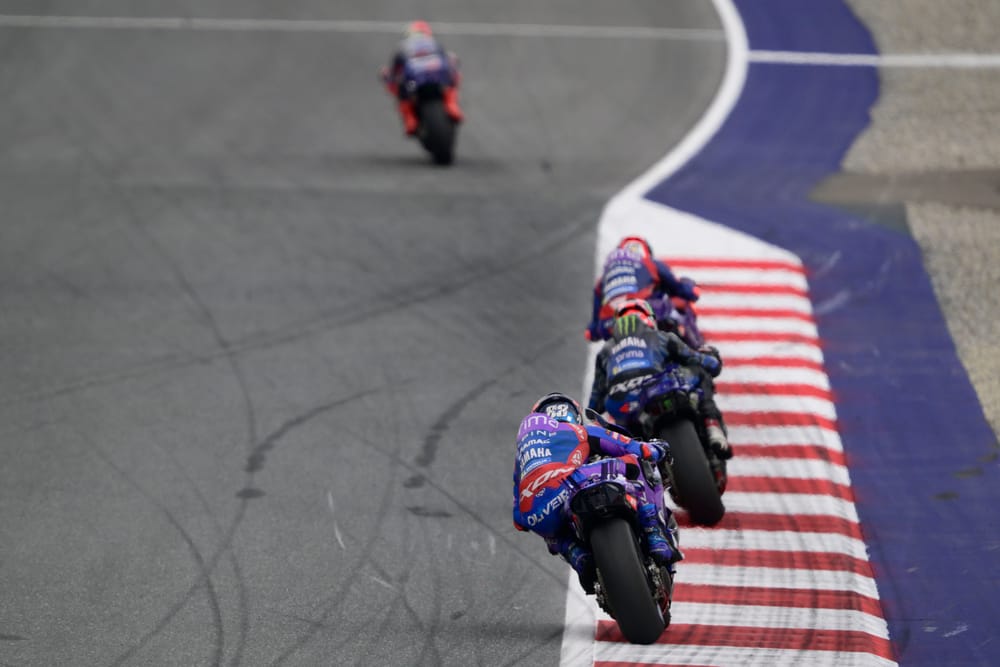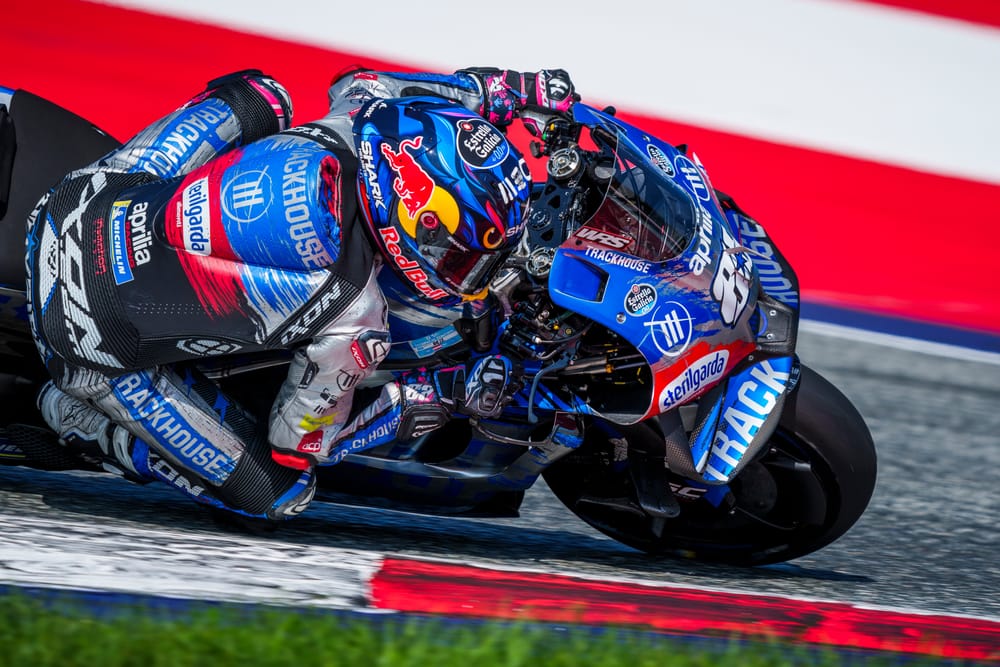Six years on from their collective first steps in MotoGP, Miguel Oliveira stands as the odd man out in the 2019 rookie quartet.
Joan Mir won a title. Fabio Quartararo won a title. Pecco Bagnaia went back-to-back. Oliveira has never fought for one - though he has five times the race wins of Mir, because MotoGP is a funny sport like that.
The other way in which he's the odd man out is that, while none of the other three are having amazing seasons exactly, they are all certain of their presence on the grid in 2026.
Oliveira is not. In fact, it's not looking good. This would've been a surprise to learn back in the off-season, when Oliveira was preparing to debut on what was widely communicated as a two-year deal - but the existence of an exit clause in that deal has been an open secret for a while now.
As we sit down for a conversation in the Pramac Yamaha hospitality at the Red Bull Ring, Oliveira isn't hiding it - after seven seasons, this might be it.
Miguel Oliveira stands alone. He is a unique presence on the MotoGP grid - an extremely sardonic, occasionally quite prickly but more often genial 30-year-old man with a handle of English so solid at a cursory listen you very easily confuse him for a native speaker.
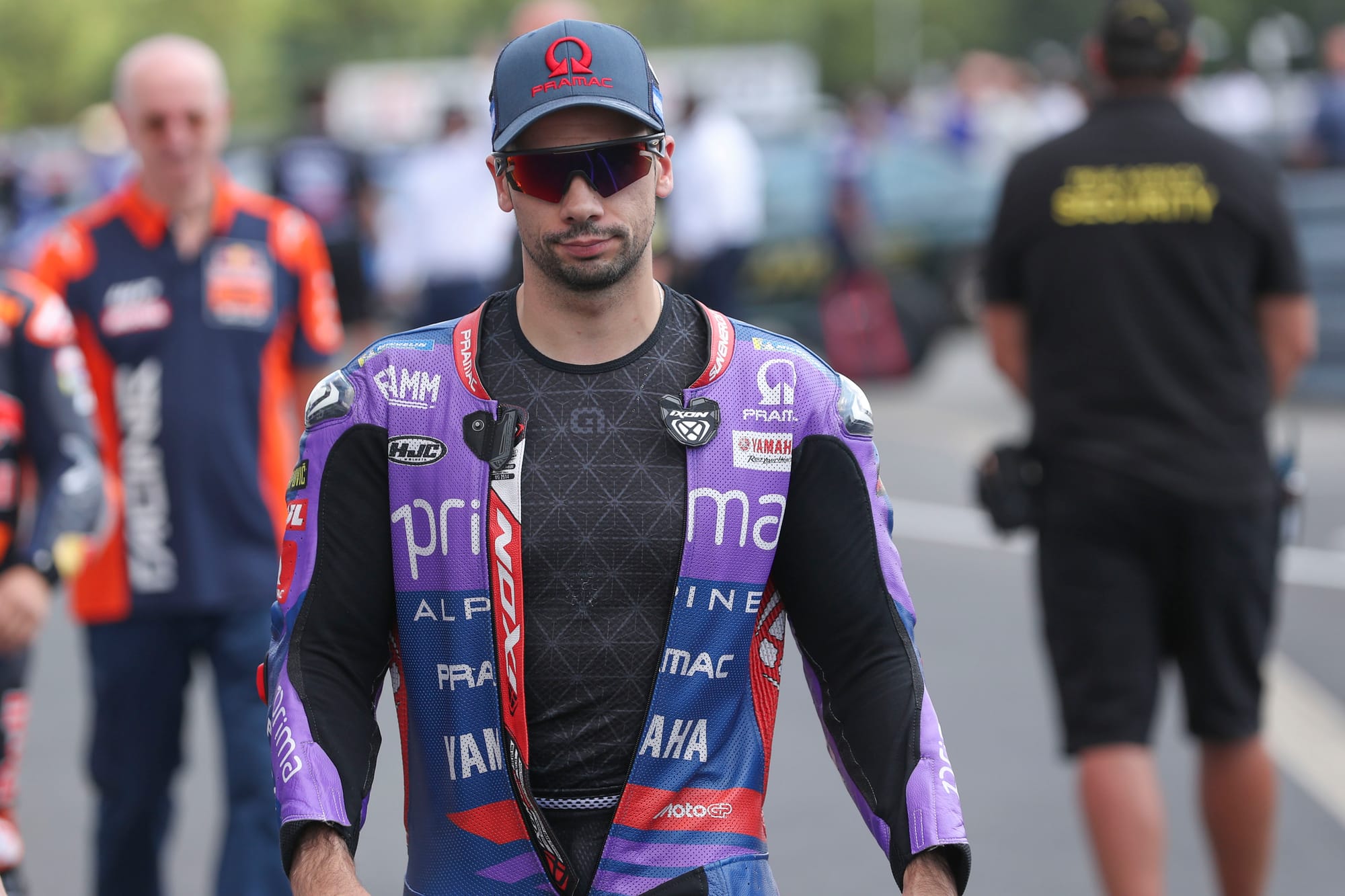
A soft-spoken, introspective kind of rider, he just seems uniquely ill-suited to what a modern sportsman looks like in the public spotlight, especially in a championship like MotoGP - and especially in MotoGP's theoretical near future in which new owner Liberty Media will surely make more of a push for the non-hardcore audience.
What that push will probably entail from the rider side - well, I've seen it in Formula 1 and it's not very 'Miguel', I tell him. He nods.
"I mean, I can do and talk about random things and be more off-track interesting, whatever, type of guy, but I do feel I would be happier with no social media.
"Like, if we go back probably 15-20 years in MotoGP, that's the era where I think I should've been born.
"But my parents had me in 1995, so we need to adapt - and I think that's the good thing. It's to not say like 'oh, I can't do media, I can't be a funny guy, I can't do clowny stuff' but it's to be able to adapt, and I think the ones that are able to do it, they have value."
The other way he stands alone - the more obvious one, the one that, it's widely known, has weighed heavily on him - is his position in MotoGP as its sole Portuguese representative.
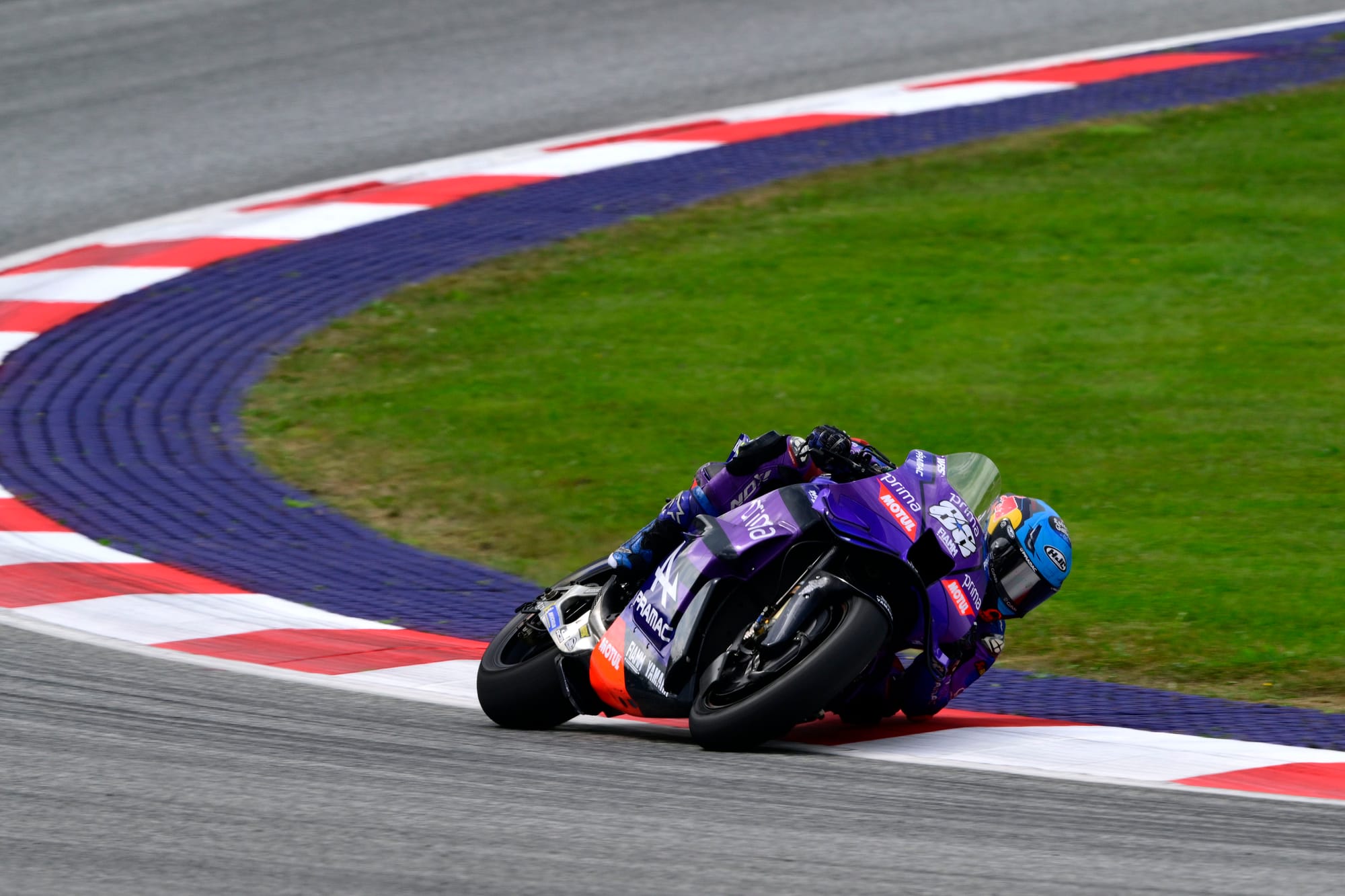
When our conversation touches upon Portuguese racers, he quickly reels off Tiago Monteiro, Antonio Felix da Costa, "hell of a driver" Filipe Albuquerque - but it's quite telling that name number four on the list is the long-retired, sometime Formula 1 and World Endurance Championship driver Pedro Lamy, and that none of those guys are riders.
It's a funny thing given that all the classes under the MotoGP umbrella are bursting at the seams with Spaniards, new and fresh Spaniards every year, better Spaniards, younger Spaniards, but nobody from the neighbouring country.
Having a market all to yourself can help. Except looking at Oliveira's career it seems clear that he would've also got good opportunities had he been Mikel Olivares from Bilbao, because his run before 125cc, through 125cc and Moto3 and then through Moto2, with the exception of one dodgy season in Leopard's aborted Moto2 project, was clearly MotoGP-quality.
Miguel Oliveira before MotoGP
2009: CEV 125cc - 3rd
2010: CEV 125cc - 2nd
2011: 125cc - 14th
2012: Moto3 - 8th
2013: Moto3 - 6th
2014: Moto3 - 10th
2015: Moto3 - 2nd
2016: Moto2 - 21st
2017: Moto2 - 3rd
2018: Moto2 - 2nd
Oliveira has not lacked for home support. Pramac points out to me he's been named Portuguese male athlete of the year four times in a public vote - most recently in 2020, when other nominees included the aforementioned Albuquerque but also some guy named Cristiano Ronaldo.
Yet there's a suggestion from Oliveira that he hasn't even really had a real chance to live up to the lofty expectations.
"In some sense I believe if you had another Portuguese rider next to me, it would make me more relatable. Or at least have a means of comparison. Especially for the fans.
"MotoGP has been a sport that was very quiet in Portugal for a long time.
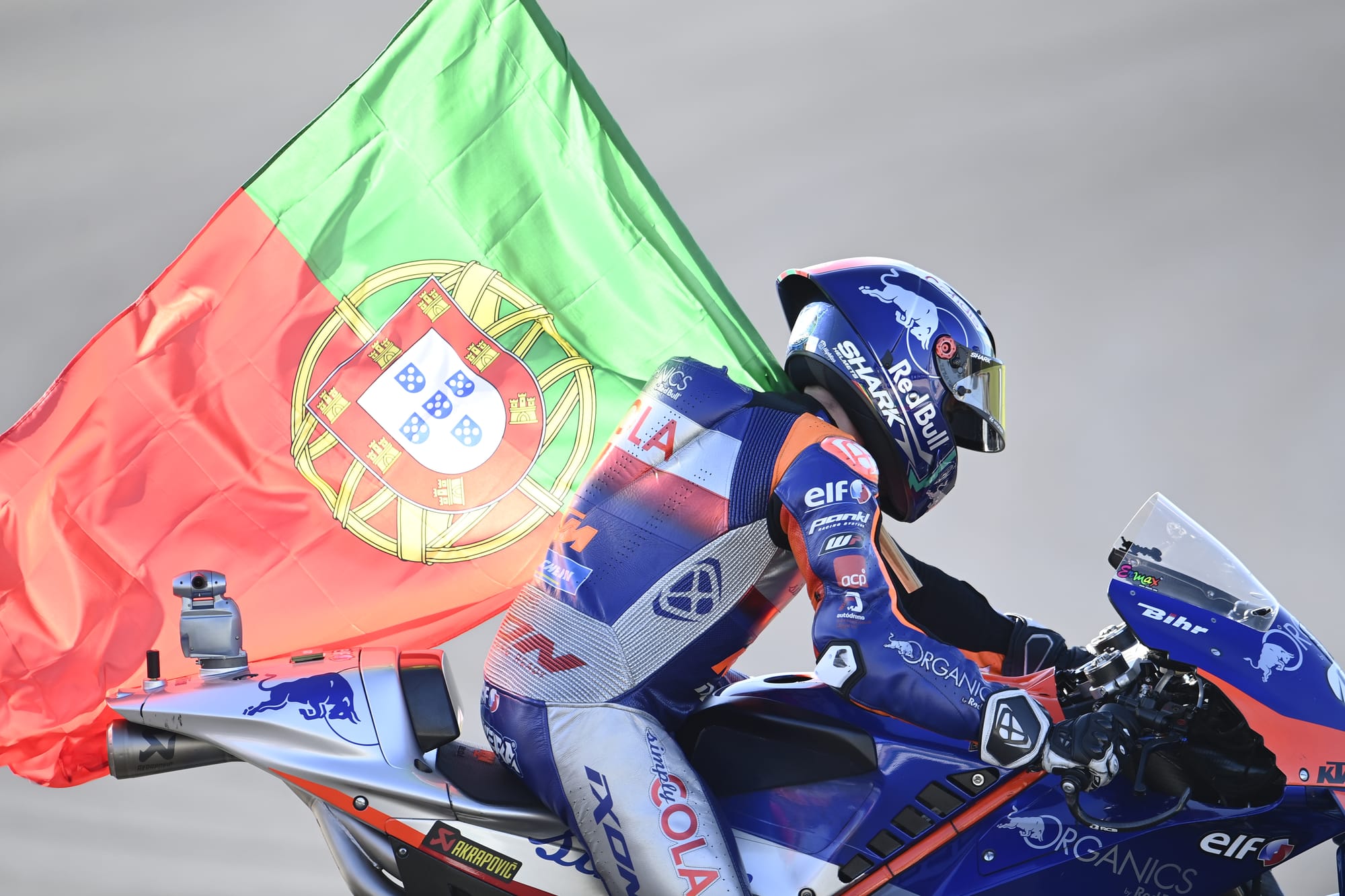
"And then when I started to come up in the smaller categories, people actually started to hear about it, they started to watch, but in my career you're talking in a very short period and people started to follow me, especially in MotoGP, the last five years of my life, of my career, so that's quite short.
"And of course they are much more judgmental about the performance they want you to show, but actually they have been just following for a short time. And I think if you have another rider, that would make me more human, more relatable to them... but yeah, I do have to carry the loneliness of not having a super big market of motorbikes."
Like for any of his peers, Oliveira's career has twisted and turned on a number of crossroads that could've changed everything.
One comes up right away as we discuss his pre-MotoGP record - incidentally, a better record than I had remembered.
"I mean, there is not a guy that's currently in MotoGP that hasn't shown a clear sign that they don't deserve to be in MotoGP," he insists.
"My career is solely based on results, you know? I've never had a way into a team that I somehow brought a sponsor or because there is so much interest accompanying me. I was under the KTM Red Bull project and that allowed me really to shine, to have access to competitive bikes, direct access to MotoGP.
"At the time when I was going to MotoGP there was almost the possibility to actually join Pramac. But it was ended from '17 to '18, that was when Pecco signed [for a 2019 debut] and the year he was world champion [in Moto2], he actually knew straight away the next year he was going to MotoGP. And I was still kind of 'what's my place, do I get to go there?'.
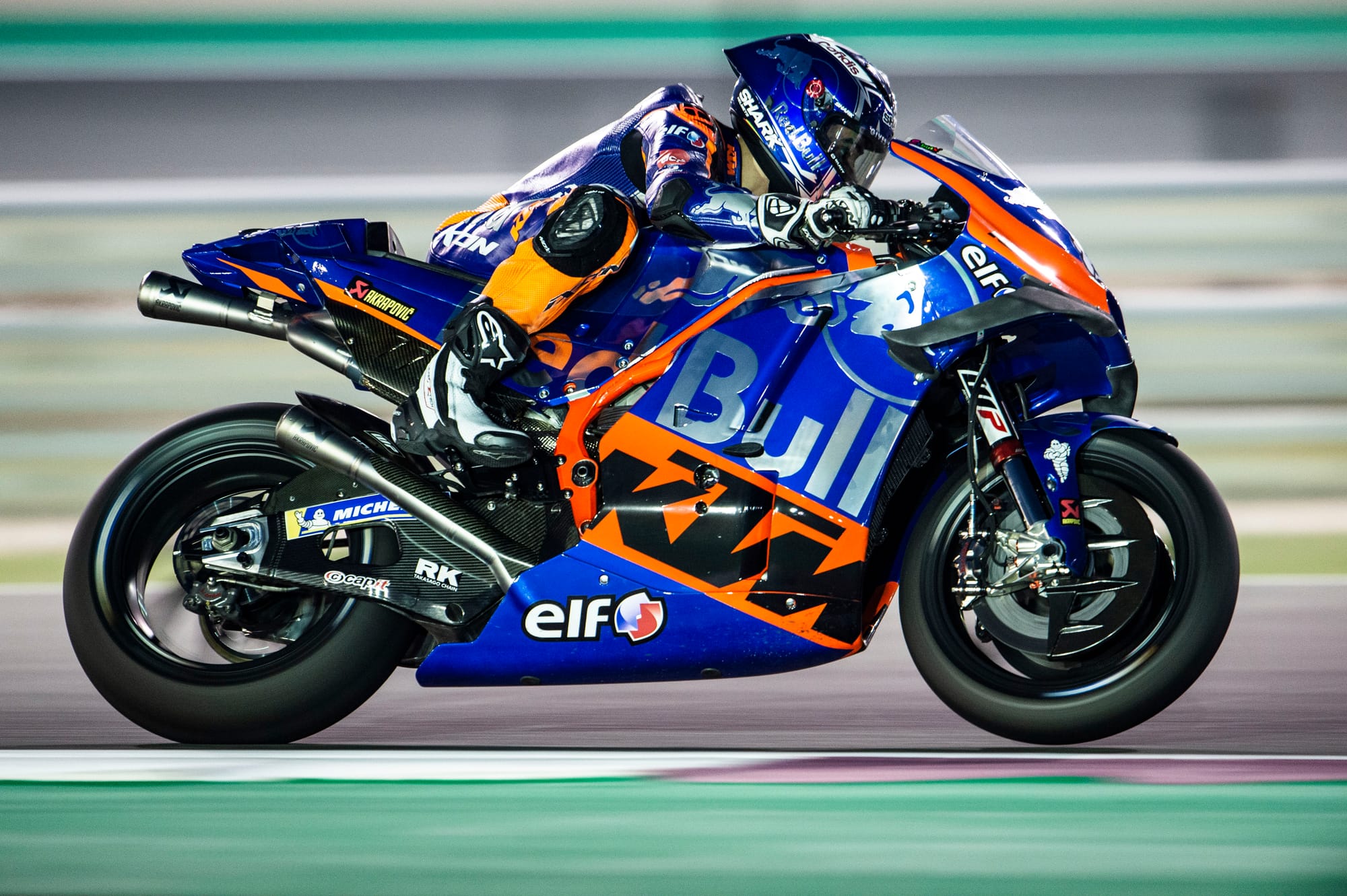
"Fortunately with KTM, with the results coming along, they gave me the shot in the satellite team."
The two years at Tech3 were productive, even though there was briefly some angst when Brad Binder was promoted - promoted over him, Oliveira felt, though it was also true he himself had been offered the seat earlier and turned it down - into the factory team for 2020. Only Pol Espargaro's defection to Honda allowed KTM to clear the logjam without any further grief.
But Oliveira's time in the works team only lasted a single contract cycle, with Jack Miller brought in as his replacement in 2023 - something Oliveira connects to the loss of momentum via a mid-2021 wrist injury, before which he was arguably MotoGP's form man for a spell.
"I feel I've always been in excellent projects but never got to the end of them," he laments. But the chance to stay at KTM was there - "a clear chance" to slot back in at Tech3, where Espargaro ended up making his KTM return instead.
"I just felt that at the moment it was the right decision for me to leave," Oliveira maintains when I ask him whether he should've stuck it out.
"Because I felt it was them rushing up to a decision that was probably too quick for them.
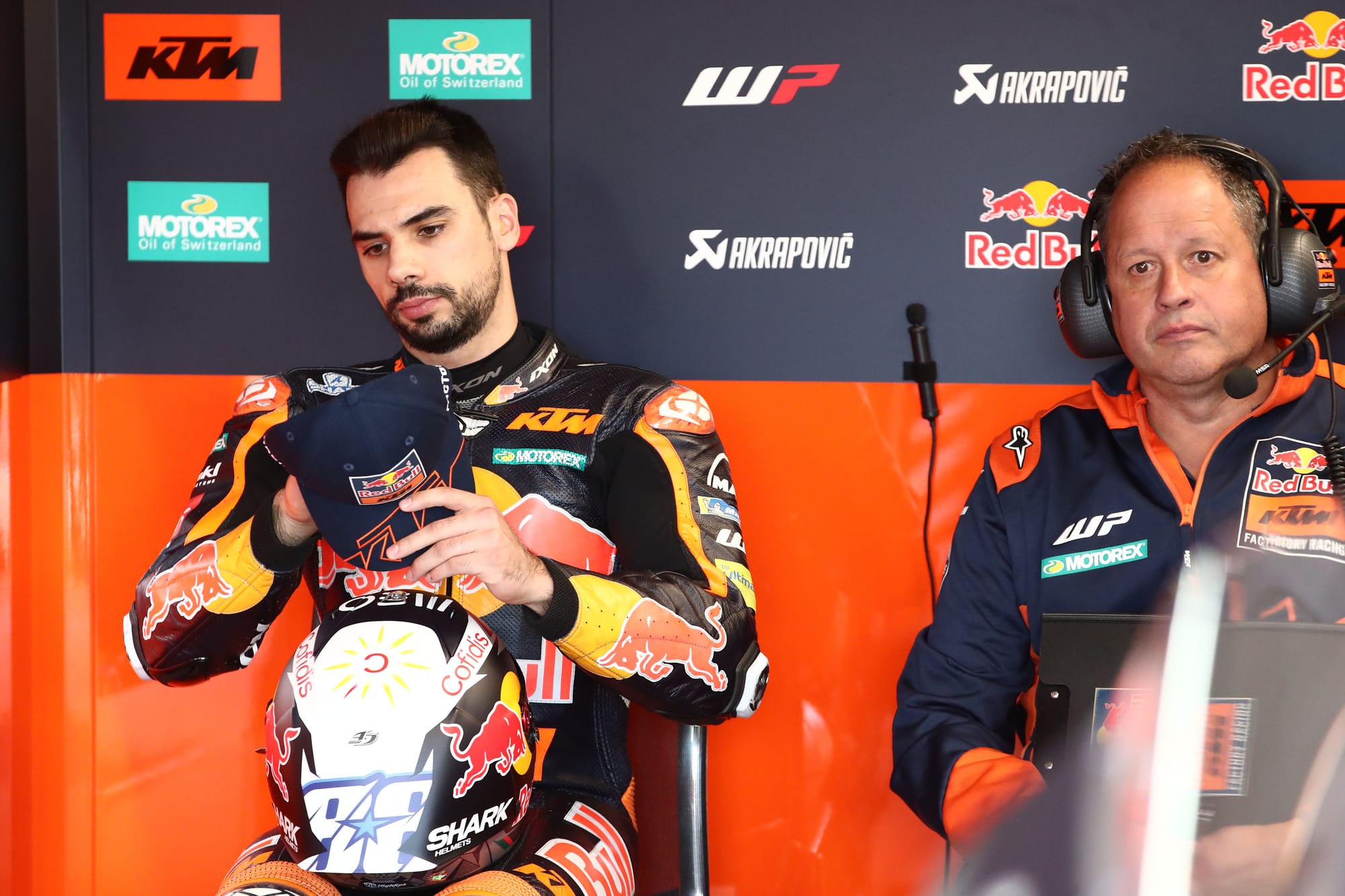
"I just felt like once you make a way into the [works] team of proving yourself and then get the spot because of results, and you get knocked out of that and get replaced by a rider from another manufacturer [Miller] - it just didn't feel right.
"It felt like 'why are you investing so much in a guy and then putting him into the second team?'. Which at the moment was like 'no, this is a factory team, every [KTM] bike is the same, whatever' - but I said 'I've been there before, I prefer this'."
'This' in that case was a switch to RNF, which had just become Aprilia's satellite team. It was by no means a self-evident competitive upgrade - but when I put to Oliveira that a MotoGP rider first and foremost wants to feel wanted by a prospective employer, he doesn't disagree.
"I think everybody wants to feel special. And in teams everyone wants to be looked at as the first guy. And you get that not only in a manufacturers' group, but you do get a lot of that in the garage. That's why everybody says you need to beat your team-mate first, so that you become the number one wanted asset for the team, and then for other teams. And that's the same for me. You want your effort to be recognised, and that's it"
During that shuffle, Oliveira was also in the frame at Gresini, his second chance of following a Ducati trail after all. Alex Marquez took the seat instead and you only need to look at the 2025 standings to see how that's worked out - but Oliveira is adamant a deal was never really on the cards for him.
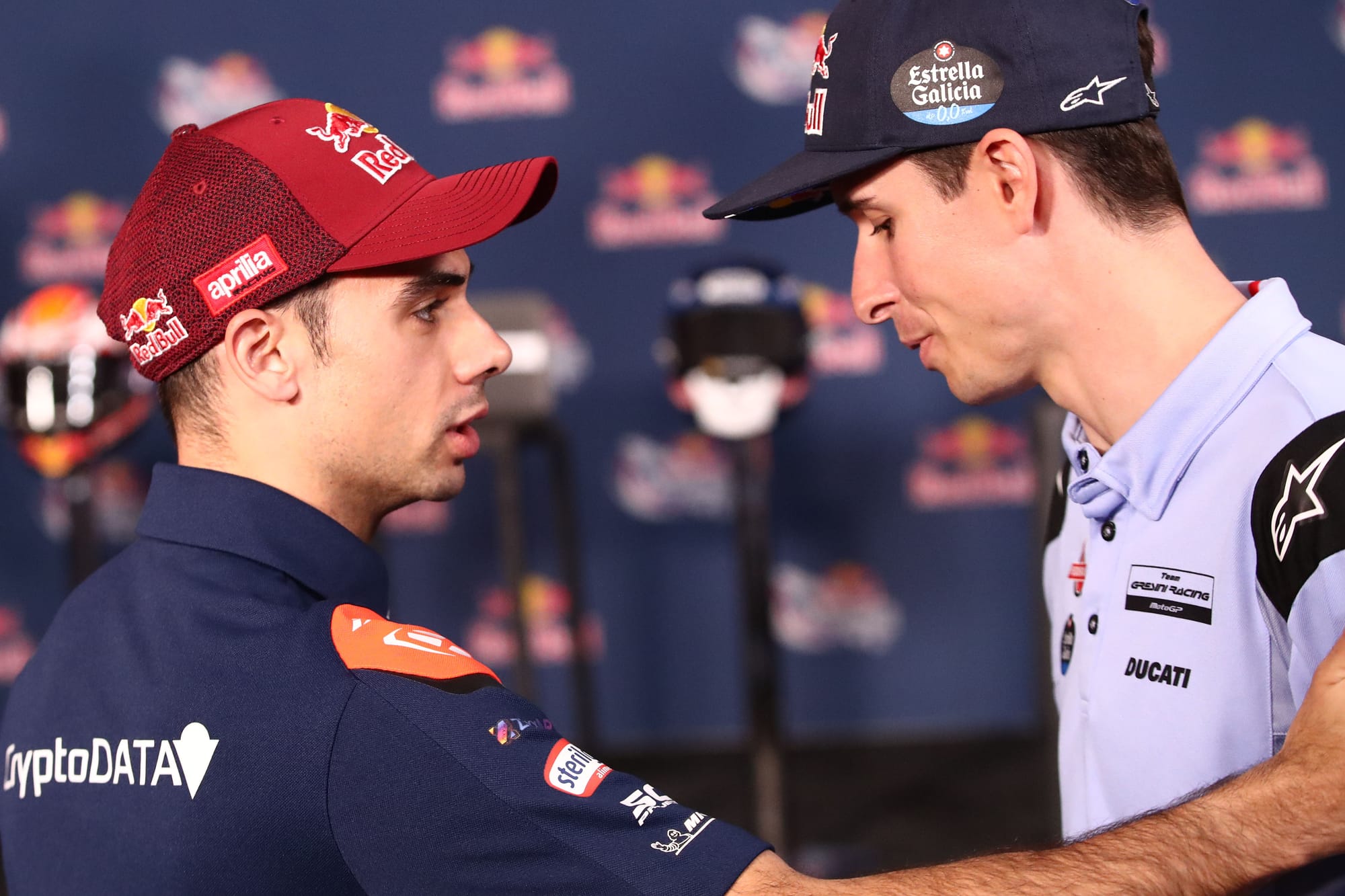
"And I tell you why - because at that moment I had to wait so long for their answer. And that was on Ducati's side," he said, his answer suggesting that a non-works contract direct with Gresini and only with Gresini (which is the younger Marquez's situation) was either never really on the cards or not something he would've gone for.
"And so... I didn't [wait around]. If a manufacturer wants you, they go straight away for you. They will not say 'sorry, give us one and a half months to think about it'.
"And so, when there's a lot of waiting time, I just tried to decide by my own, and at that moment it felt like Aprilia was the manufacturer to go."
The Aprilia bid had looked a masterstroke from both sides in the pre-season and in the early days of the season. Oliveira had had a great first contact with the RS-GP.
Then he got hurt. Then he got hurt again. And it never really got going - to the point where all sides (Oliveira, Aprilia and Trackhouse, which had replaced RNF as Aprilia's partner) seemed largely 'over' the experiment by the time the next cycle of contracts was being hashed out.
The Yamaha tenure, the two-year deal that it turns out wasn't, also feels like it hasn't really got going. Oliveira didn't have a great run through testing, then got hurt again, then returned to a whirlwind of paddock chatter about him being cut loose.
He hasn't been good, but how much of it is the injury setback and how much is any fundamental difficulty with the Yamaha M1, which team-mate Miller seems to have clicked better with, is really hard to gauge.
And it shouldn't be underestimated how easy it is to look bad on a bike like the Yamaha - or, really, on any MotoGP bike that isn't the Desmosedici.
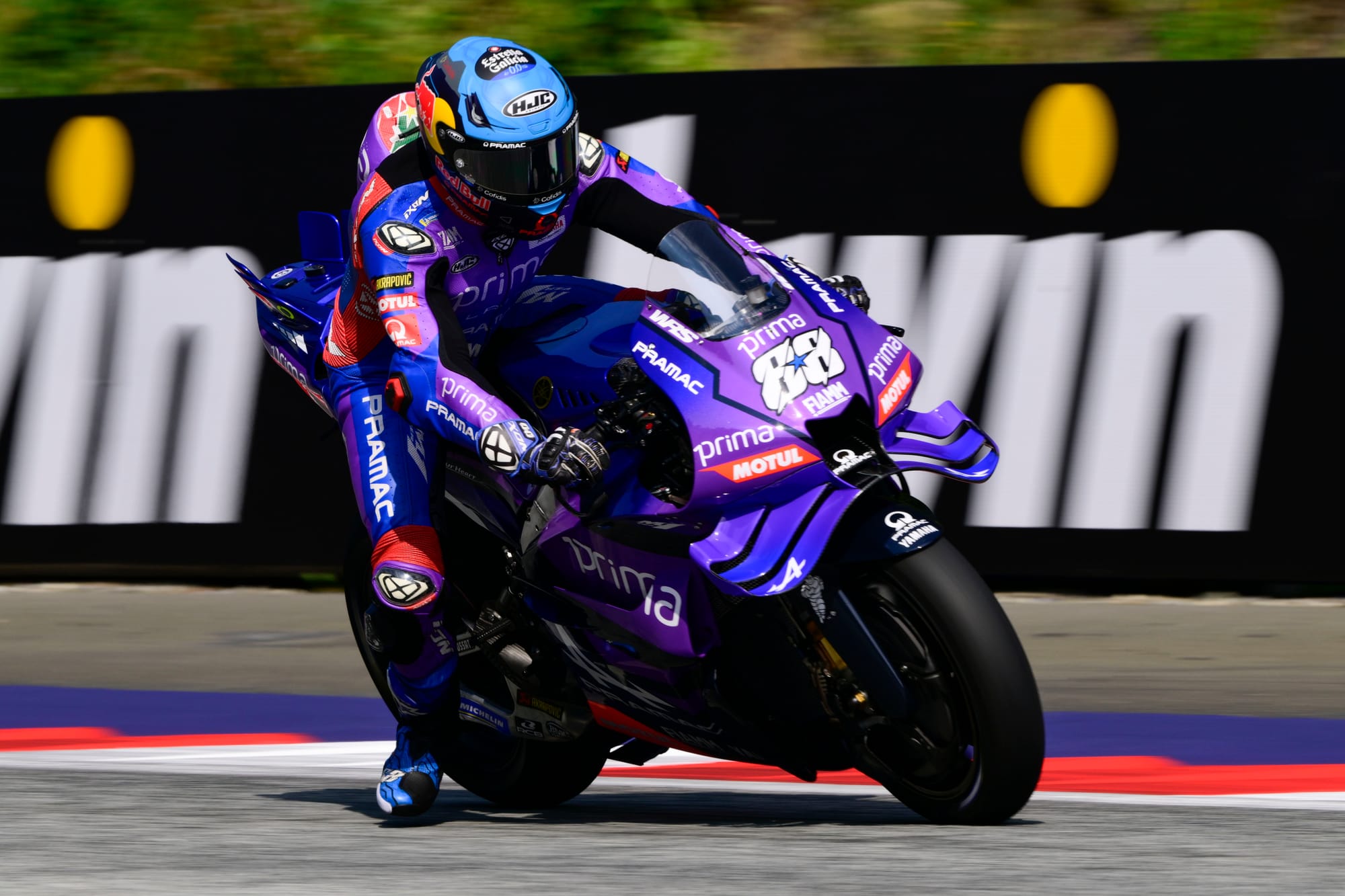
I tell Oliveira my theory that not only is the Ducati obviously good for delivering results, but it gives its riders a built-in weekend margin that protects them from looking bad.
"I mean, we have seen it on video analyses that we do, we've seen the Ducati is very forgiving," he replies.
"If you brake a few metres later and you miss the apex, you lose not a lot compared to what we lose if we miss the apex.
"Especially the Yamaha bike is very unforgiving in that sense. It's a difficult bike to ride.
"I understand the outside judgment, because people relate to what they see on TV, it's normal, they rank the Ducati guys usually as top ones because they're going fast. But... the bike is doing quite a lot. I don't like to say it's doing a lot for them, but it's helping for sure."
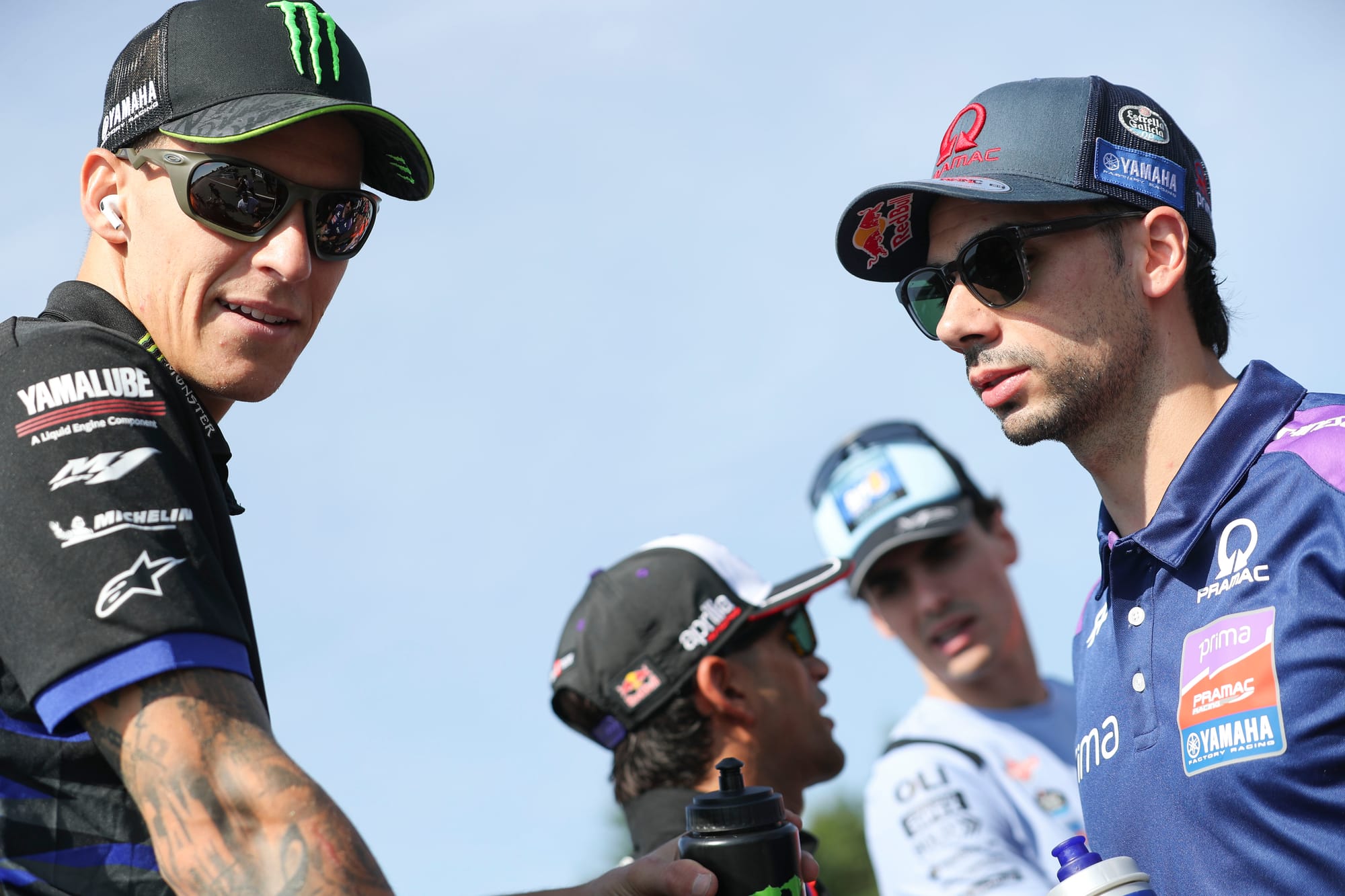
The other factor that has done Oliveira a disservice isn't a factor so much as a good friend - Fabio Quartararo, who ever since becoming a works rider at Yamaha, has made it his speciality to make other Yamaha riders look terrible.
"He's very good," Oliveira concurs. "Very good.
"Fabio, I mean, if you ask any rider, they will tell you exactly the same - he is one of the most talented guys, that got his way of winning a championship, but was a very [hard-]fought one, and in the last few years I think he could've done much more.
"But I think he's on the right way, and this year you see he's having more fun, and that's important also. And I hope he gets what he wants because he's an extraordinary talent."
Barring a late rider market twist, it feels like this is it.
Oliveira was already looking up against it in the battle against Miller when Yamaha's Toprak Razgatlioglu deal revealed only one incumbent could stay at Pramac. And now it looks like it may well be zero incumbents, given Moto2 ace Diogo Moreira is seemingly mulling a Yamaha 2026 offer of his own.
At 30, he is the grid's fourth-oldest full-timer. The third-oldest, Franco Morbidelli, is only a month older, and the fifth- and sixth-oldest, Maverick Vinales and team-mate Miller, are eight and 13 days younger respectively.
Even if the campaign's been bad, it's hardly bold to say Oliveira could still contribute in MotoGP, especially as it switches to the 850cc rules. But if he drops of the grid here, a return feels difficult.
If this is it, I ask him, is that OK?
"I have no regrets over what I've done.
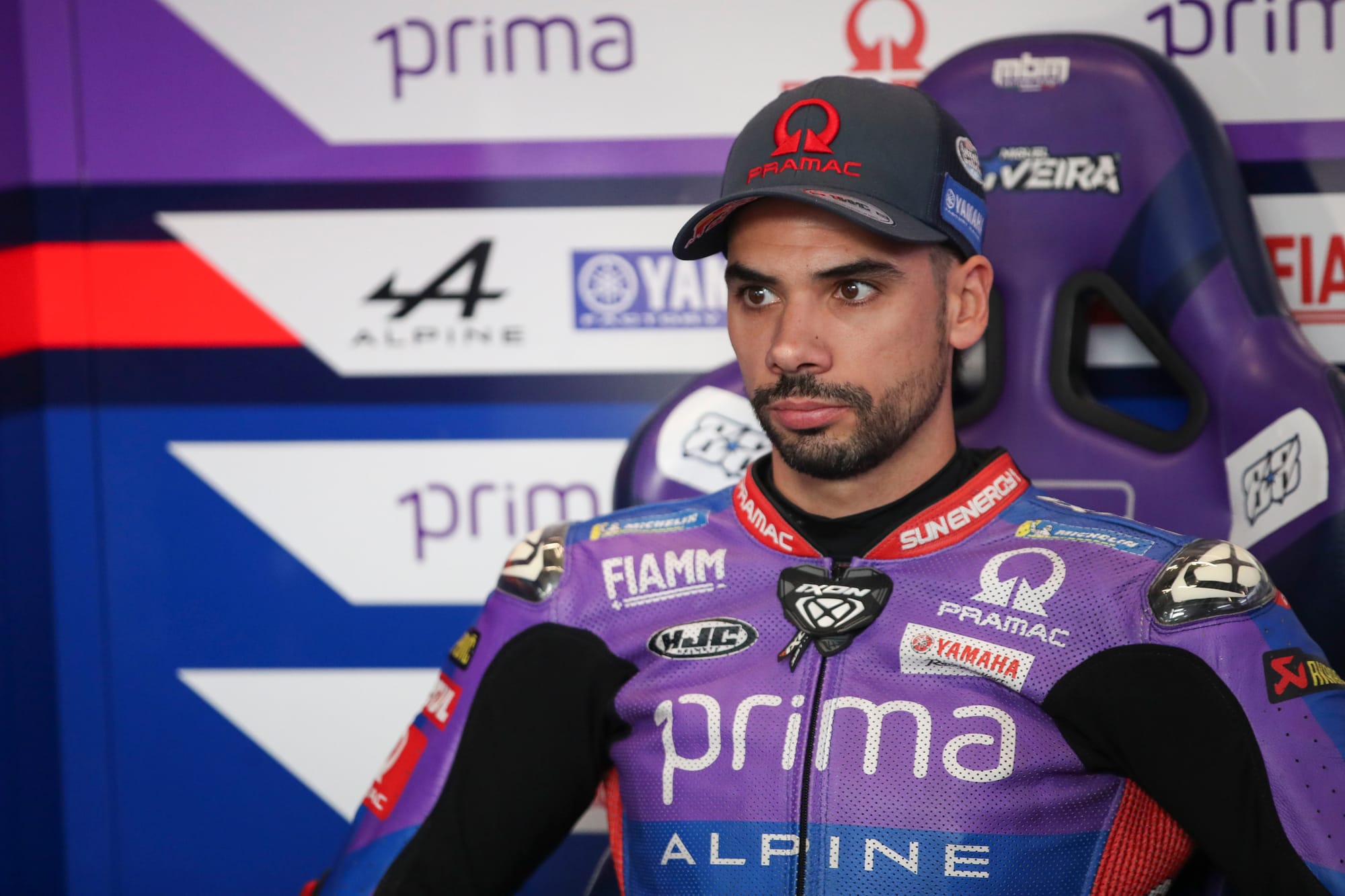
"[But] I feel, if I leave the paddock, I would feel incomplete. I think my abilities as a rider are more than what I did, than what I showed.
"That may be perceived as arrogance or kind of presumptuous on my part - but that's truly what I feel. And we are in a sport where comparisons come often, and compared to other guys I feel I have more.
"But it is what it is. Competition is like that. It can be unforgiving sometimes. That's the reality. And also the paddock, when you are especially at the elite, you need to show, you need to ride a bike fast."
On some days, MotoGP saw an incredible Oliveira. His 2020 win on home soil at Portimao was a profound beatdown, Tech3's day of days, and it's just one of five wins. Only 36 riders in the history of the premier class have more.
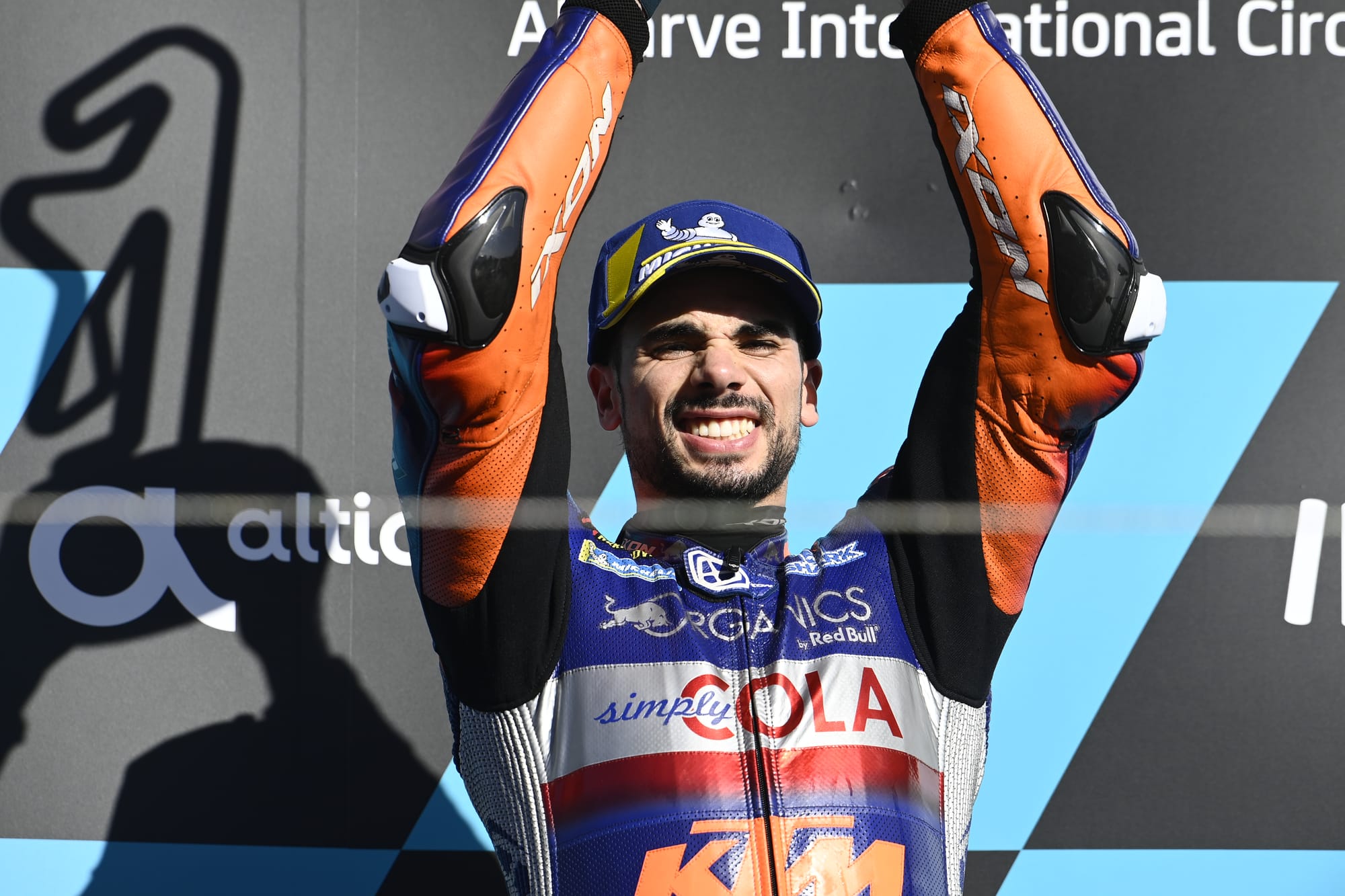
It's not nothing, right? "No-no," he says. "But I tell you, I treat the wins a little bit as the losses.
"They come and they go. That's my philosophy in life. Nothing really lasts forever. A win is a great moment of joy to be remembered, but also losses hurt sometimes, but you need to get over them. You cannot take wins or losses too seriously."
All throughout this current rider market saga, Oliveira has remained very stoic publicly - particularly last time out at the Red Bull Ring.
Is he truly not worried, I ask. He laughs: "I'm not!"
Is that because a door should open up in World Superbikes? Or is that because, after seven years on various works contracts in MotoGP, Oliveira knows he has done alright for himself in terms of financial health if not sporting ambition?
We'll get a clearer idea soon enough. For now, Oliveira simply says, laughing again: "Whatever happens, I will be OK! That's the message. I will be more than OK, I think."


